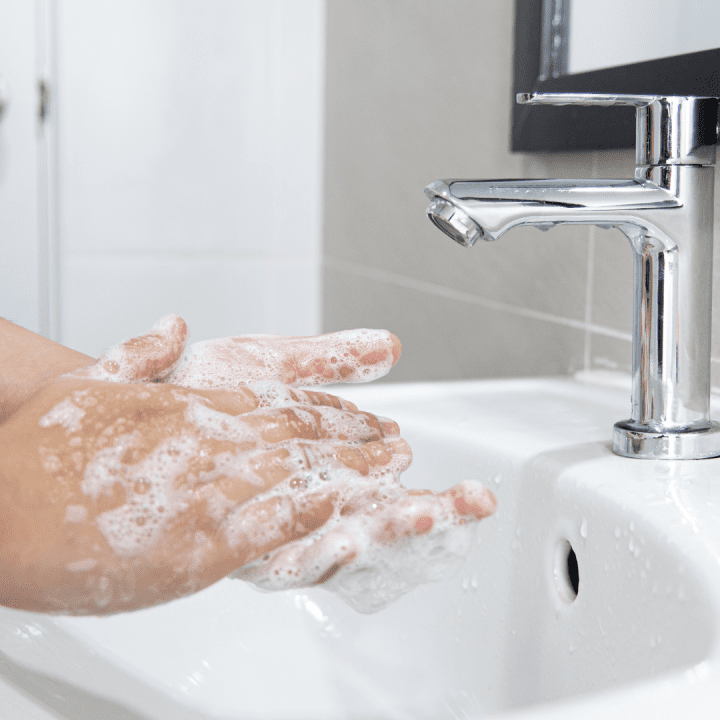Preventing Norovirus in Care Homes During the Festive Season
The festive season is a time of joy and celebration, but it also brings heightened risks for the spread of illnesses like norovirus, particularly in care homes where vulnerable residents are at greater risk. Norovirus, commonly known as the “winter vomiting bug,” is highly contagious and can cause severe outbreaks
The festive season is a time of joy and celebration, but it also brings heightened risks for the spread of illnesses like norovirus, particularly in care homes where vulnerable residents are at greater risk. Norovirus, commonly known as the “winter vomiting bug,” is highly contagious and can cause severe outbreaks if not properly managed. According to the UK Health Security Agency (UKHSA), norovirus activity has been at its highest levels during the 2023-2024 winter season, especially among people aged 65 and older, with 67% of outbreaks occurring in care homes, emphasising the need for robust preventative measures.
1. Understand Norovirus and Its Spread
Norovirus is a gastrointestinal virus that spreads quickly through contaminated food, water, surfaces, and person-to-person contact. Symptoms include vomiting, diarrhoea, and stomach cramps, which can be especially dangerous for elderly residents with weakened immune systems. Recent UK surveillance reports indicate that laboratory-confirmed cases of norovirus in 2023 were more than double the five-season average before the pandemic.
Key factors contributing to its spread in care homes include:
- Close living quarters.
- Shared facilities like dining rooms and bathrooms.
- Increased visitors during the festive season.

a
a
2.Enforce Rigorous Hand Hygiene
Hand hygiene is one of the most effective ways to prevent the spread of norovirus. Studies show that handwashing with soap and warm water is significantly more effective than alcohol-based hand gels for removing norovirus particles
Care homes should:
- Ensure staff, residents, and visitors wash hands thoroughly before meals and after using the restroom.
- Place hand hygiene posters in key areas to remind everyone of proper technique.
Recommended Supplies:
- Antibacterial hand soaps.
- High-quality paper towels or air dryers.
- Hand hygiene posters to remind everyone of proper technique.
a
3.Clean and Disinfect Surfaces Regularly
Norovirus can survive on surfaces for days if not properly disinfected. During the festive season, care homes often see an increase in visitors and shared activities, making cleaning even more critical. Focus on high-touch surfaces such as:
- Door handles, light switches, and handrails.
- Dining tables, chairs, and serving trays.
- Bathroom fixtures like faucets and toilet flush handles.
Best Practices:
- Use cleaning products specifically certified to kill norovirus.
- Follow proper dwell times to ensure disinfectants are effective.
- Implement frequent cleaning schedules, especially during outbreaks.
Recommended Supplies:
- Hospital-grade disinfectants.
- Disposable cleaning cloths or microfiber cloths for each area to avoid cross-contamination.
4.Manage Food Safety
Food can be a major source of norovirus outbreaks. Care homes should ensure:
- Kitchen staff follow strict hygiene protocols, including wearing gloves and hair nets.
- Surfaces and utensils are thoroughly cleaned and disinfected.
- Food is stored, cooked, and served at the appropriate temperatures.
Tip: Limit self-service food options during the festive season to minimise cross-contamination risks.
5.Set Visitor Guidelines
During the holidays, an influx of visitors can introduce norovirus into the care home. To minimise risks:
- Encourage visitors to postpone their visit if they are feeling unwell or have experienced vomiting or diarrhoea in the past 48 hours.
- Provide hand sanitising stations at entrances.
- Limit the number of visitors in shared spaces at one time.

a
a
6.Isolate Cases Promptly
If norovirus symptoms appear in a resident or staff member:
- Isolate the affected individual immediately to prevent further spread.
- Use personal protective equipment (PPE) such as gloves and masks when caring for them.
- Increase cleaning frequency in their living area.
Recommended Supplies:
- Disposable gloves and aprons.
- Heavy-duty bin bags for contaminated waste.
- Odour-neutralising air fresheners to maintain a pleasant environment.
7.Educate Staff and Residents
Awareness is key to prevention. Conduct regular training for staff on:
- Recognising symptoms of norovirus.
- Proper cleaning and disinfection techniques.
- Importance of reporting symptoms promptly.
Provide educational materials for residents and visitors, emphasising the importance of hygiene and precautionary measures.
8.Plan for Outbreaks
Despite the best efforts, outbreaks can still occur. Care homes should have an outbreak management plan that includes:
- Clear protocols for isolating infected individuals.
- Communication plans to inform families while maintaining privacy.
- Stockpiles of cleaning supplies, PPE, and disinfectants.
By taking these proactive steps, care homes can create a safer environment for residents, staff, and visitors, ensuring that everyone can enjoy the festive season without compromising health and well-being.
Our Latest News
View newsFloor Cleaning Tips for Snow, Salt, and Slush
Winter weather brings more than chilly air. Across the UK, snow, slush, and salt often create problems that increase the
View articleWorkplace Cleaning for Cold and Flu Season: Essential Products for Infection Control
Cold and flu season returns every year, bringing disruption, staff sickness and lost productivity across UK workplaces. Research shows that
View articleAutumn Leaf Fall: Gutter, Drain & Exterior Cleaning for UK Businesses
As autumn arrives in the UK, falling leaves create more than just picturesque scenery, they can cause real problems for
View article